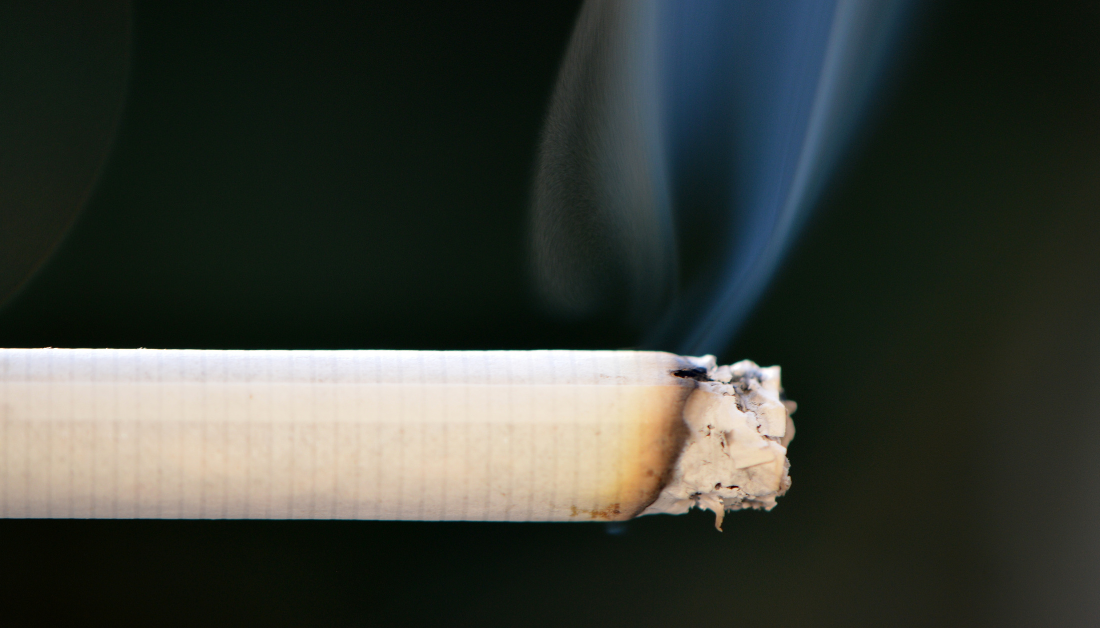

Scientists at the Ontario Institute for Cancer Research (OICR) have discovered one mechanism by which tobacco smoking causes cancer and makes it more difficult to treat by eroding the body’s anti-cancer defenses.
Their new study, published in Science Advances, ties tobacco use to damaging changes in DNA known as stop-gain mutations,’ which instruct the body to cease producing specific proteins before they are fully produced.
They discovered that stop-gain mutations were particularly common in genes known as ‘tumor-suppressors,’ which produce proteins that ordinarily prevent aberrant cells from proliferating.
“Our study showed that smoking is associated with changes to DNA that disrupt the formation of tumor suppressors,” says Nina Adler, a University of Toronto Ph.D. student who led the study during her postgraduate research in Dr. Jüri Reimand’s lab at OICR. “Without them, abnormal cells are allowed to keep growing unchecked by the cell’s defenses and cancer can develop more easily.”
Adler, Reimand, and colleagues analyzed DNA from over 12,000 tumor samples from 18 distinct forms of cancer using advanced computational tools. Their findings revealed a substantial relationship between stop-gain mutations in lung cancer and the ‘footprint’ that smoking leaves in DNA.
The researchers then investigated whether the amount of smoking a person did have an effect. Indeed, their investigation revealed that increased smoking led to an increase in these deleterious mutations, which can ultimately make cancer more complex and difficult to cure.
“Tobacco does a lot of damage to our DNA, and that can have a major impact on the function of our cells,” says Reimand, an OICR Investigator and Associate Professor at the University of Toronto. “Our study highlights how tobacco smoking actually deactivates critical proteins, which are the building blocks of our cells, and the impact that can have on our long-term health.”
Other variables and processes responsible for the huge frequency of stop-gain mutations, commonly known as ‘nonsense’ mutations, were also uncovered in the study.
Some, like the APOBEC enzyme family, which has been associated with stop-gain mutations in breast cancer and other cancer types, occur naturally in the body. Other factors, such as an unhealthy diet and alcohol intake, are likely to have comparable detrimental effects on DNA, according to Reimand, but more research is needed to completely understand how this occurs.
In terms of smoking, Adler believes that the findings of this study are an important piece of the puzzle that is a leading cause of cancer worldwide.
“Everyone knows that smoking can cause cancer, but being able to explain one of the ways this works at a molecular level is an important step in understanding how our lifestyle affects our risk of cancer,” Adler says.
According to OICR President and Scientific Director Dr. Laszlo Radvanyi, these new findings should reaffirm the fact that tobacco smoking is one of the most serious hazards to our health.
“This is further proof of the immense damage smoking has on our bodies and further evidence that stopping smoking is always the right choice,” Radvanyi says.
For more information: Mutational processes of tobacco smoking and APOBEC activity generate protein-truncating mutations in cancer genomes, Science Advances
more recommended stories
 CTNNB1 Syndrome Study Explores Beta-Catenin Defects
CTNNB1 Syndrome Study Explores Beta-Catenin DefectsKey Takeaways Researchers in Spain are.
 Tuberculosis Breakthrough with Experimental Antibiotics
Tuberculosis Breakthrough with Experimental AntibioticsKey Takeaways Experimental antibiotics disrupt a.
 National Healthy Longevity Trial Receives Federal Support
National Healthy Longevity Trial Receives Federal SupportKey Summary Up to $38 million.
 Red Blood Cells Improve Glucose Tolerance Under Hypoxia
Red Blood Cells Improve Glucose Tolerance Under HypoxiaKey Takeaways for Clinicians Chronic hypoxia.
 Nanoplastics in Brain Tissue and Neurological Risk
Nanoplastics in Brain Tissue and Neurological RiskKey Takeaways for HCPs Nanoplastics are.
 AI Predicts Chronic GVHD Risk After Stem Cell Transplant
AI Predicts Chronic GVHD Risk After Stem Cell TransplantKey Takeaways A new AI-driven tool,.
 Red Meat Consumption Linked to Higher Diabetes Odds
Red Meat Consumption Linked to Higher Diabetes OddsKey Takeaways Higher intake of total,.
 Pediatric Crohn’s Disease Microbial Signature Identified
Pediatric Crohn’s Disease Microbial Signature IdentifiedKey Points at a Glance NYU.
 Nanovaccine Design Boosts Immune Attack on HPV Tumors
Nanovaccine Design Boosts Immune Attack on HPV TumorsKey Highlights Reconfiguring peptide orientation significantly.
 High-Fat Diets Cause Damage to Metabolic Health
High-Fat Diets Cause Damage to Metabolic HealthKey Points Takeaways High-fat and ketogenic.

Leave a Comment